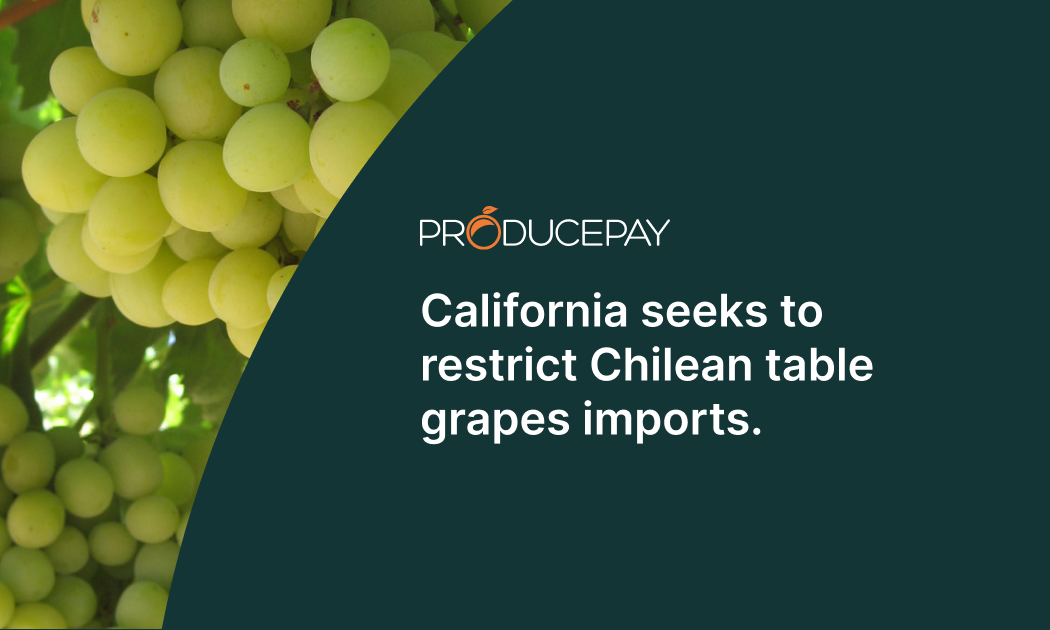
California seeks to restrict Chilean table grapes imports.
A controversy has emerged between California’s table grape producers and their Chilean counterparts, bringing issues of international trade, food safety, and environmental protection to the forefront.
The California Table Grape Commission strongly opposes Chile’s proposal to implement a systems approach to grape exports. This change would eliminate the requirement to fumigate all Chilean grapes before distribution in the United States.
Reasons for California’s Resistance
California’s resistance to this change is a multifaceted issue directly impacting the sustainability of its industry.
The California Table Grape Commission has unequivocally opposed Chile’s proposal to adopt a systems approach for grape exportation.
The primary concern is that failing to fumigate may allow for the entry of pests and diseases currently under control, jeopardizing table grape production and other critical sectors such as wine, juice, and raisins.
While methyl bromide fumigation is controversial due to its environmental implications, it has proven to be an effective method for protecting local crops from invading pests such as the Chilean false red mite.
Considering these risks, California’s opposition reflects not only an economic concern about import competition but also a legitimate caution about maintaining the integrity and safety of its agroecosystem.
Economic Implications of the Proposal
The economic and ecological implications of Chile’s proposal for California’s table grape industry are profound and complex.
Economically, California’s table grape producers face a challenging scenario as they contend with the competition from imported grapes, which typically have a lower cost, significantly pressuring local producers.
The Californian industry, expecting an initial harvest of 96.9 million 19-pound boxes in 2023, has been affected not only by price competition but also by the high cost of production, including sustainable farming practices and pest control measures.
How ProducePay Supports the Table Grape Industry
ProducePay stands as an ally for the table grape industry. Our Predictable Commerce Platform gives producers and marketers greater control over their businesses, offering unprecedented access to capital, business opportunities, market information, and supply chain visibility.
This visibility drives economic growth, creates stability for investing in sustainable farming and distribution practices and better connects growers with end buyers.
By eliminating unnecessary intermediaries, ProducePay reduces economic and food waste, helping to reduce carbon emissions and thus supporting the table grape industry in its efforts to maintain sustainable and competitive practices in the global market.
